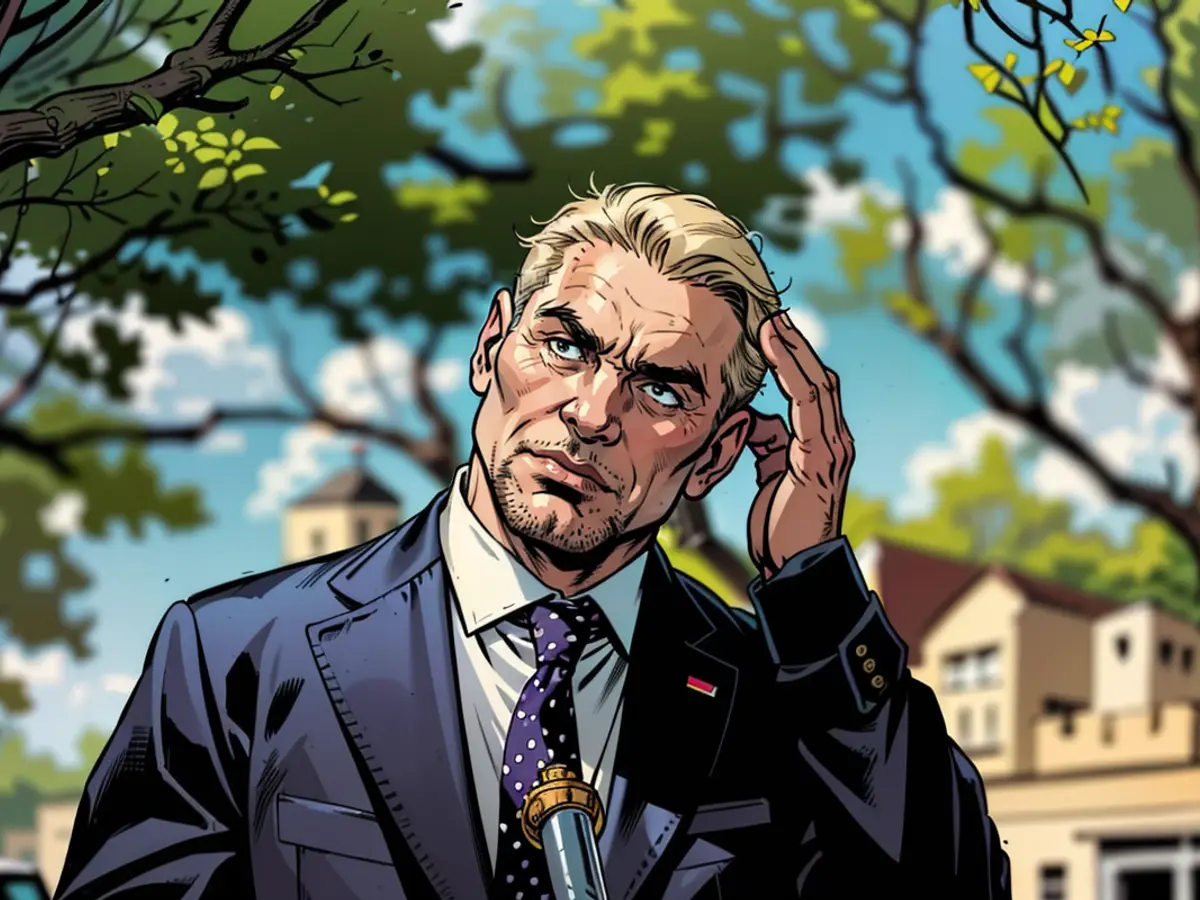Scholz dismisses blockade allegations as sheer nonsense.
At the G7 summit in Italy, the EU plans to introduce their 14th round of sanctions against Russia, but it's likely such measures won't materialize given recent reports suggesting the German government has put the kibosh on it. Chancellor Scholz, however, assured Sender Welt TV that there is no blockage and discussed the practical steps needed to keep German businesses thriving, while making sure goods destined for regions like South America, Asia, or Africa don't find their way into Russia via some convoluted routes.
Scholz flat-out denied accusations of Germany obstructing the new EU sanctions against Russia. He assured that discussions are ongoing about the specific execution of the package. Scholz highlighted the importance of ensuring German firms' activities can continue unhindered, but also taking precautions to ensure the diversion of goods to Russia is minimized. The Chancellor expressed confidence that a resolution will be reached soon, stating it's merely a matter of practicality, not principles.
The proposed sanctions bundle includes various measures to curb the bypassing of existing restrictions, which, in turn, aids the Russian defense industry in acquiring Western technology for weapons systems used in the conflict against Ukraine.
Initially, the EU aimed to pass the 14th sanctions package even before the G7 summit in Italy, which concluded on a weekend. However, this did not happen due to German objections, according to EU diplomats. The situation led some EU officials to compare Germany's resistance to Hungary's past derailment of EU sanctions against Russia, referring to Hungarian Prime Minister Viktor Orban.
Scholz dismissed this comparison in the interview with Welt TV as sheer rubbish. Germany, according to the Chancellor, aims to find a workable solution, emphasizing the government's desire. The right-nationalist Hungarian government led by Prime Minister Viktor Orban is known for its pro-Russian stance. Most recently, Hungary blocked a multi-billion dollar deal for arms deliveries to Ukraine in the EU.
During the negotiations, the German government is said to demand concessions such as limiting or scrapping the liability of subsidiaries of transferred companies to avoid the possibility of German firms being held liable for sanctions violations.
This isn't the first instance of the German government's actions causing consternation among partners. Recently, they prevented the commissioning of a new project for Ukraine as a "NATO Mission Ukraine" (NMU) in NATO, citing concerns over misinterpretation of the name as an implication that NATO would send troops to Ukraine, and potential exploitation by Russia for propaganda purposes against the Alliance.
Read also:
Olaf Scholz faced accusations of blocking the EU's 14th round of sanctions against Russia, but he firmly denied these allegations, stating that discussions about the execution of the package are ongoing. Despite recent reports suggesting Germany's opposition, Chancellor Scholz emphasized the importance of maintaining the flow of goods to regions like South America, Asia, and Africa while minimizing their diversion to Russia.








